“Lord of the Flies” by William Golding is a timeless novel exploring human nature and civilization. Finding a free PDF online is convenient, with various formats available for easy access and reading.
Brief Overview of “Lord of the Flies”
William Golding’s “Lord of the Flies” tells the story of boys stranded on an island after a plane crash, exploring themes of savagery, civilization, and human nature. As they attempt to govern themselves, the group descends into chaos, revealing darker aspects of humanity. Golding’s 1954 novel is a powerful allegory, inspired by his experiences in World War II, and remains a significant work in literary history, offering profound insights into societal structures and moral decay.
Importance of the Novel in Literature
William Golding’s “Lord of the Flies” is a literary classic, widely studied for its profound exploration of human nature, morality, and civilization. Its allegorical narrative challenges societal norms, making it a cornerstone in educational curriculums worldwide. The novel’s themes resonate across generations, sparking debates on ethics and governance. Its influence extends beyond literature, shaping discussions on human behavior and societal structures, ensuring its enduring relevance in modern discourse.

Where to Find a Free PDF of “Lord of the Flies”
Free PDF versions of “Lord of the Flies” are available on platforms like the Internet Archive, LitRes, and various eBook repositories. These sites offer legal and convenient access to the novel in multiple formats, ensuring readers can explore Golding’s timeless story without cost.
Popular Websites for Downloading Free eBooks
Popular platforms like Project Gutenberg, ManyBooks, and Google Books offer free eBook downloads, including classic novels like “Lord of the Flies.” These websites provide easy access to literature in formats such as PDF, EPUB, and TXT, making it convenient for readers to enjoy timeless stories without cost. Many of these platforms also feature user-friendly interfaces and extensive libraries, ensuring a seamless reading experience for book lovers worldwide.
Internet Archive and Its Resources
The Internet Archive is a nonprofit digital library offering free access to books, including “Lord of the Flies” by William Golding. It provides PDF, EPUB, and TXT formats, ensuring compatibility with various devices. Users can download or read online, with features like full-text search. The archive preserves cultural and historical content, making it a reliable source for literature enthusiasts. Its resources are freely accessible, supported by donations from users worldwide.
Available Formats for “Lord of the Flies”
“Lord of the Flies” is available in PDF, EPUB, and TXT formats, ensuring readability across various devices. These formats are widely accessible and user-friendly.
PDF, EPUB, and TXT Versions
“Lord of the Flies” is widely available in PDF, EPUB, and TXT formats, ensuring accessibility across various devices. PDF retains the book’s original layout, while EPUB offers adjustable fonts for e-readers. TXT provides a lightweight, simple option for quick reading. These formats are easily downloadable from platforms like the Internet Archive or LitRes, making the novel accessible to readers worldwide in their preferred digital format.
Benefits of Each Format
PDFs preserve the book’s formatting and illustrations, ideal for readers who value visual fidelity. EPUBs adapt to different screen sizes, offering a flexible reading experience. TXT files are lightweight and compatible with all devices, perfect for quick access without additional software. Each format caters to different reader preferences, ensuring accessibility and convenience for enjoying “Lord of the Flies” digitally.

Key Themes in “Lord of the Flies”
Explores civilization vs. savagery and human nature, revealing how isolation affects behavior, societal structures, morality, and the emergence of survival instincts, highlighting the descent into chaos.
Civilization vs. Savagery
The novel portrays the conflict between civilized behavior and primal instincts. The boys’ regression into savagery highlights their descent from order to chaos. Symbols like the conch shell and the beast represent the loss of innocence and fear. Golding explores how isolation erodes moral structures, revealing humanity’s darker side and the inherent struggle between civility and primal nature, emphasizing the fragility of societal norms and the emergence of survival instincts.
The Nature of Humanity
William Golding explores the inherent duality of human nature through the boys’ actions on the island. Their descent from innocence to savagery reveals the primal instincts lurking beneath civilization. The novel highlights how fear, power, and survival instincts drive individuals to abandon moral constraints. This reflects Golding’s belief in humanity’s capacity for both good and evil, emphasizing the thin line between order and chaos in the absence of societal norms.
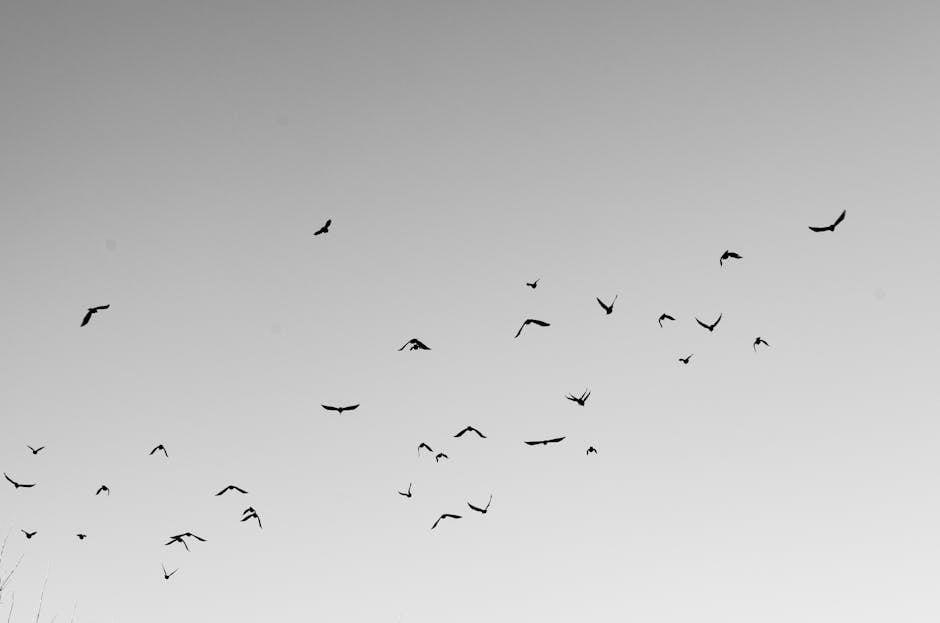
Literary Devices Used by William Golding
William Golding employs symbolism and allegory to explore human nature, using elements like the conch shell and the beast to represent societal structures and primal fears effectively.
Symbolism in the Novel
The novel is rich in symbolism, with the conch shell representing order and democracy, while the “beast” embodies fear and primal instincts. The island itself symbolizes a microcosm of society, showcasing humanity’s descent into savagery. Ralph and Jack’s conflict mirrors the struggle between civilization and power. These symbols deepen the narrative, exploring themes of human nature and societal collapse, making the story a profound allegory of human behavior and moral decay.
Allegory and Its Significance
William Golding crafts a compelling allegory in “Lord of the Flies,” using the island as a microcosm of society. The boys’ descent into savagery mirrors humanity’s inherent flaws, while the conch shell and “beast” symbolize order and fear. This allegorical framework critiques human nature, revealing how quickly societal norms crumble without authority. The novel serves as a timeless reflection on humanity’s duality, emphasizing the thin line between civilization and primal instincts, ultimately questioning the true nature of mankind.
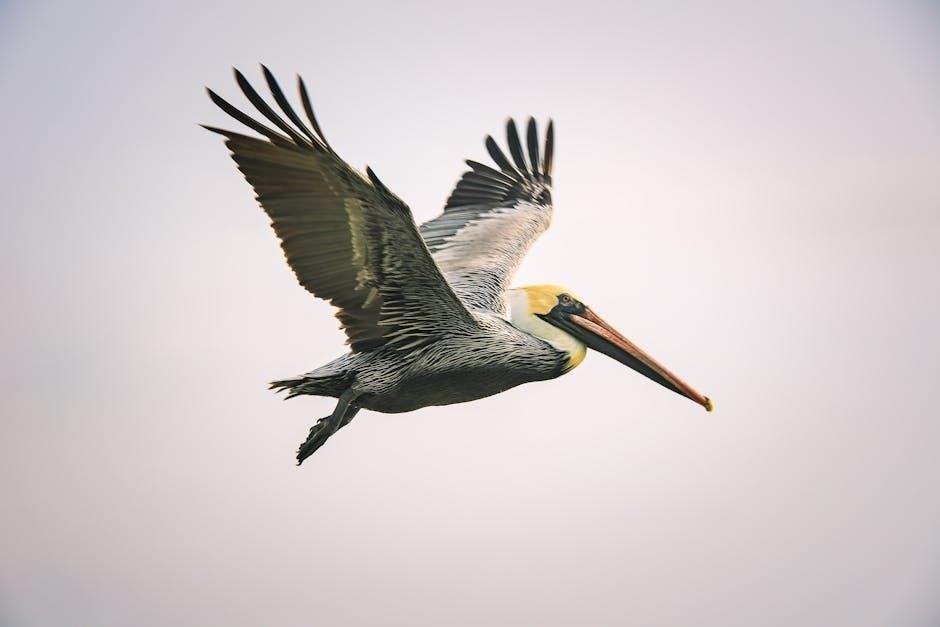
Study Guides and Resources
Free study guides and essay plans for “Lord of the Flies” are widely available online, offering in-depth analysis and thematic insights to enhance your understanding of the novel.
Free Study Guides for “Lord of the Flies”
Free study guides for “Lord of the Flies” are readily available online, offering detailed essay plans, thematic analysis, and insights into Golding’s exploration of human nature. These resources provide structured approaches to understanding the novel’s key themes, such as civilization vs. savagery, leadership, and morality. Many guides are available in PDF format, making them easy to download and use for academic purposes. They are invaluable for students and readers seeking to deepen their analysis of the text.
Essay Plans and Analysis
Free essay plans and analysis for “Lord of the Flies” are available online, offering structured approaches to understanding the novel’s themes and characters. These resources provide detailed insights into Golding’s exploration of human nature, civilization, and savagery. They include study guides and critical essays that help students and readers deepen their analysis of key elements, enhancing academic study, engagement, and comprehension of the text effectively and thoroughly.

William Golding’s Background
William Golding was a British novelist and educator, deeply influenced by his teaching experiences and World War II. His works explore human nature, making his novels, like “Lord of the Flies,” timeless and sought after in free PDF formats online.
Biography and Writing Style
William Golding, a British novelist and educator, drew inspiration from his teaching career and World War II experiences. His writing style, sparse yet evocative, explores human nature’s darker aspects. In “Lord of the Flies,” Golding uses symbolism to reflect societal themes, making his work both profound and accessible. His unique approach has made the novel a classic, with free PDF versions widely sought after for study and personal reading.
Inspirations Behind the Novel
William Golding’s inspirations for “Lord of the Flies” stemmed from his early life, including his childhood fascination with philosophy and theology. His experiences in World War II deepened his understanding of human nature’s duality. The novel reflects post-war societal tensions and the inherent conflict between order and savagery. These influences shaped the story’s themes, making it a timeless exploration of humanity, accessible now through free PDF downloads for global readers.

Structure of the Book
“Lord of the Flies” is divided into 12 chapters, each advancing the plot and themes. The novel begins with the boys’ arrival on the island and progresses through their attempts at civilization, eventual descent into savagery, and the final rescue. The free PDF versions available online preserve this structure, allowing readers to follow the narrative seamlessly.
Chapter Breakdown
“Lord of the Flies” is structured into 12 chapters, each with a distinct title reflecting key events. The novel begins with “The Sound of the Shell,” introducing the boys and their island. Subsequent chapters like “Fire on the Mountain” and “Beast from Water” explore their struggles with survival and fear. The free PDF versions available online maintain this structure, allowing readers to follow the boys’ descent from order to chaos seamlessly.
Plot Summary and Key Events
“Lord of the Flies” follows a group of boys stranded on an island after a plane crash. Initially, they attempt to create a civilized society, electing Ralph as leader. However, fear and savagery gradually take over, fueled by the legend of a “beast.” Key events include the death of Simon, the tribe’s hunting of Ralph, and the eventual rescue, revealing the boys’ descent into chaos and the loss of innocence.
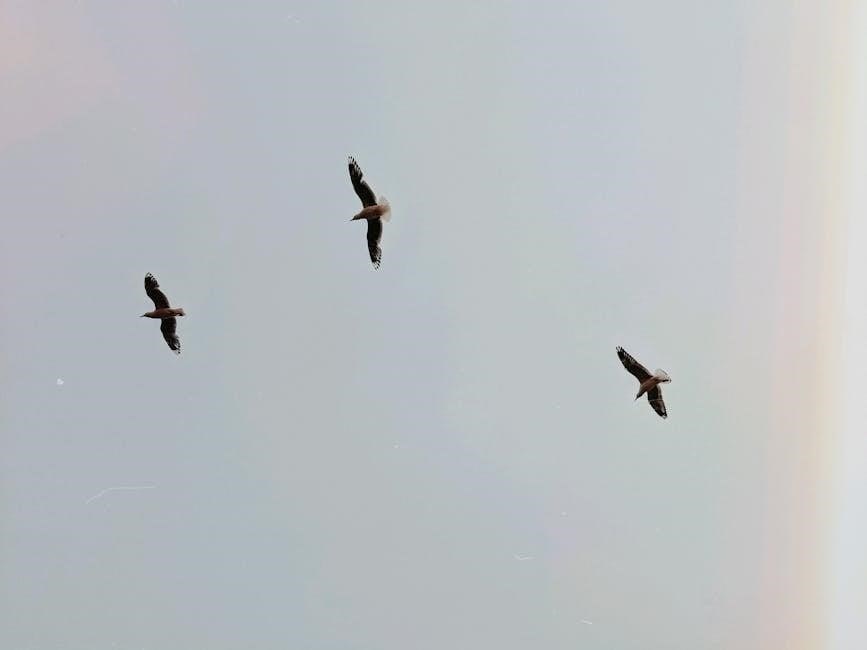
Critical Essays and Analysis
Critical essays on “Lord of the Flies” explore themes of human nature, civilization, and savagery. Analysts like Harold Bloom provide insights into Golding’s exploration of societal decay, offering downloadable PDFs for deeper understanding of the novel’s allegorical significance and its reflection on human behavior in primal conditions.
Downloadable Critical Essays
Downloadable critical essays on Lord of the Flies offer in-depth analyses of William Golding’s exploration of human nature, societal decay, and moral dilemmas. These essays, available as free PDFs, provide insights into the novel’s themes, symbolism, and allegorical elements. Scholars like Harold Bloom have contributed essays that dissect Golding’s writing style and the novel’s historical context. These resources are invaluable for students and readers seeking a deeper understanding of the book’s complexity and significance, enhancing both academic and personal analyses.
Themes and Literary Criticism
Lord of the Flies explores themes of civilization vs. savagery, human nature, and the effects of isolation. Literary criticism often examines how Golding uses the island as a microcosm for societal structures, highlighting inherent evil within humanity. Critics also analyze the novel’s allegorical elements, such as the conch shell symbolizing order and the “beast” representing fear. These analyses, available in free PDFs, provide deeper insights into Golding’s exploration of human morality and behavior, enriching readers’ understanding of the novel’s timeless themes.
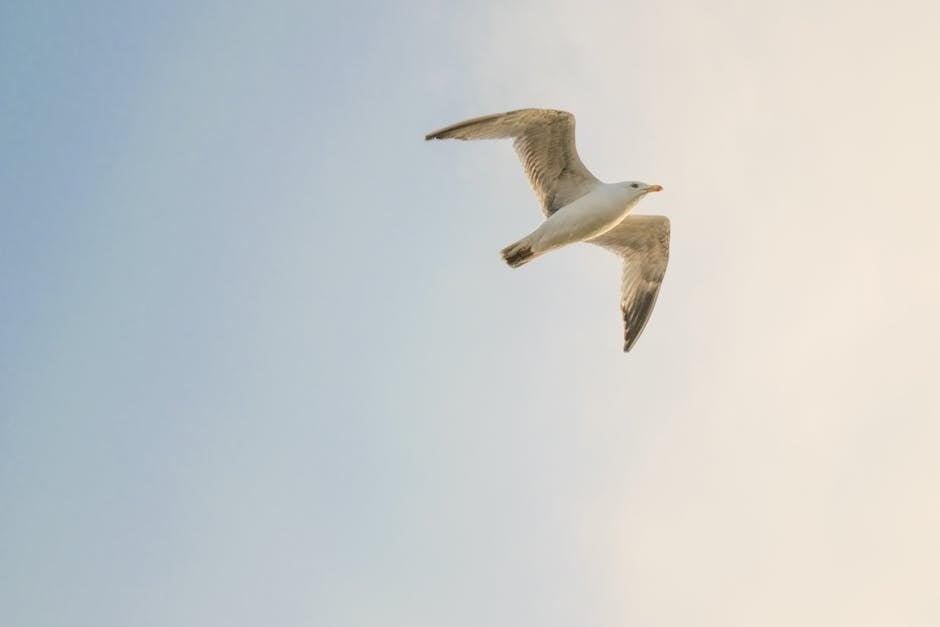
Modern Relevance of “Lord of the Flies”
Lord of the Flies remains a powerful allegory for modern societal challenges, reflecting issues like political polarization, social media’s impact, and groupthink. Its exploration of human nature and leadership continues to resonate, offering timeless insights into our collective behavior and ethical dilemmas, making it a vital read in today’s world.
Why the Novel Remains Popular
Lord of the Flies endures as a literary classic due to its timeless themes of human nature, civilization, and savagery. Its exploration of ethical dilemmas and group dynamics resonates universally, appealing to readers of all ages. The novel’s adaptability into various formats, including free PDFs, ensures accessibility for modern audiences, making it a staple in education and casual reading alike, continuing to provoke thought and reflection on humanity’s innate tendencies.
Contemporary Adaptations and Interpretations
Lord of the Flies continues to inspire modern adaptations, including films, stage plays, and even a forthcoming television series by Eleven Films. Its timeless themes of power and morality are reinterpreted in various mediums, appealing to new audiences. Educators and scholars often use the novel to explore human nature, societal structures, and ethical dilemmas. Digital formats, like free PDFs, further enhance its accessibility, ensuring its relevance in today’s cultural landscape.
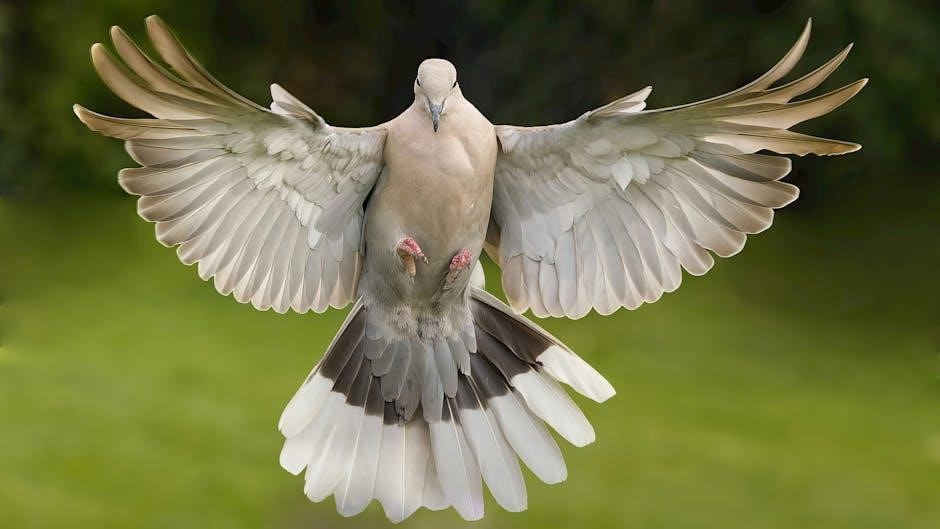
Frequently Asked Questions
Where can I find a free PDF of Lord of the Flies?
Is it legal to download a free PDF of the book?
Are there study guides available for free?
How can I access the novel in different formats?
Common Questions About the Novel
Readers often ask where to find a free PDF of Lord of the Flies and whether it’s legal. Others inquire about available formats like EPUB or TXT and if study guides are accessible. Additionally, questions about the novel’s themes, such as civilization vs. savagery, and its educational significance frequently arise, highlighting its enduring relevance in literature and academic studies.
Legal and Ethical Considerations for Downloads
Downloading a free PDF of Lord of the Flies may infringe on copyright laws, depending on the source. Ensure the website is authorized to distribute the book. Respect intellectual property by using legal platforms or purchasing a copy. Unauthorized downloads can support piracy, harming authors and publishers. Always verify the legality of the source to avoid potential legal consequences and ethical dilemmas.
“Lord of the Flies” remains a profound exploration of humanity, civilization, and savagery. Accessing a free PDF responsibly ensures you enjoy this classic while respecting its creators.
Final Thoughts on the Novel
“Lord of the Flies” is a gripping tale that delves into the depths of human nature, revealing how quickly civilization can unravel. Through its vivid characters and intense plot, William Golding masterfully explores themes of power, morality, and the inherent darkness within us all. The novel’s timeless relevance ensures it remains a crucial read for understanding societal dynamics and human behavior, making it a must-read for anyone interested in literary classics that provoke deep reflection and thought.
Encouragement to Read
Embark on a thought-provoking journey with “Lord of the Flies,” a masterpiece that challenges your perspective on humanity. Accessible in formats like PDF, EPUB, and TXT, the novel is easy to download and read. Dive into its exploration of civilization, morality, and savagery, and discover why it remains a timeless classic. Your free PDF awaits—start reading today and uncover the depths of human nature through Golding’s gripping narrative!
